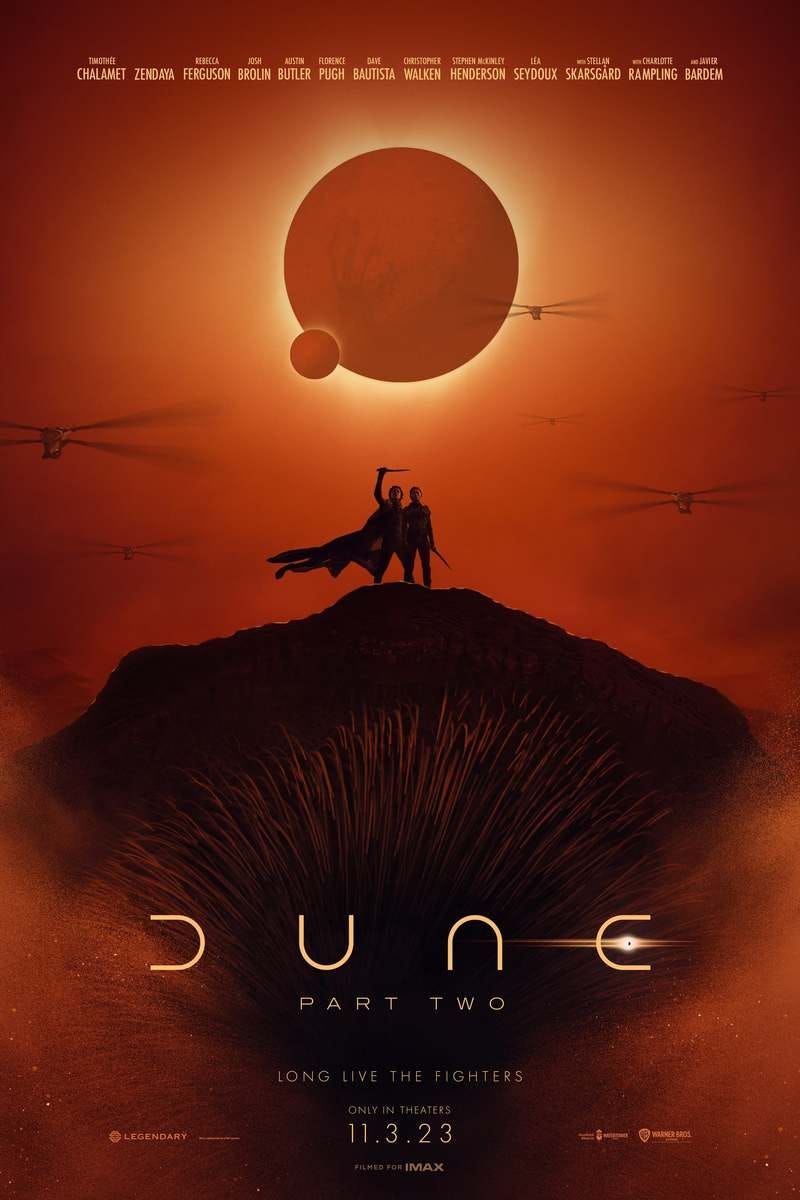6 April 2024. Woolf | Dune
Reading A Room of One’s Own // Dune: Part Two, techno-feudalism, and the age of technopoly [#558]
Welcome to Just Two Things, which I try to publish three days a week. Some links may also appear on my blog from time to time. Links to the main articles are in cross-heads as well as the story. A reminder that if you don’t see Just Two Things in your inbox, it might have been routed to your spam filter. Comments are open. And—have a good weekend.
1: Reading ‘A Room of One’s Own’ (Part 1)
This is the first part of a two-part review. Part Two will appear next week.
I decided to read Virginia Woolf’s essay A Room of One’s Own because David Runciman selected it on an LRB podcast series as one of the great essays of the 20th century.1
It’s a famous essay, and of course I knew of it, but I’d never tried to read it. I also hadn’t realised what a substantial piece of work it is. I’m used to essays running to 25 pages or so, but A Room of One’s Own clocked in, in the edition I read, at 108 pages.
Until Runciman mentioned it, I also had not expected it to be funny. Not laugh out loud funny, but there’s a mischievous dry wit, even a puckish set of fun, running right through it.
You’ll probably know what ‘A Room of One’s Own’ is about. A room of one’s own is a necessary but not a sufficient condition that allows women to write. Not sufficient, because she also needs an annual income of £500 a year to ensure her economic freedom. In 1928, when Woolf gave the lectures that the essay was written from, £500 was worth £26,001, according to the Bank of England’s inflation calculator. In practice this was probably £500 of earning power, so it was likely worth more than this.2
(Virginia Woolf in the 1930s)
When she gave the pair of lectures to Cambridge undergraduates, her reputation as a leading modernist novelist was secure. She was in her 40s, and had already published Mrs Dalloway and To The Lighthouse. But the persona that Virginia Woolf adopts for the pair of lectures, to women undergraduates in Cambridge, is of the poorly educated woman who is struggling to understand the things that male authority figures are saying about women in general, and about women writers in particular.
For example, in an early sequence in the British Library she ploughs through a large pile of books written by men about women, while also noting that there are far fewer books the other way around:
How shall I ever find the grains of truth embedded in all this mass of paper? I asked myself, and in despair began running my eye up and down the long list of titles. Even the names of the books gave me food for thought. Sex and its nature might well attract doctors and biologists; but what was surprising and difficult of explanation was the fact that sex—woman, that is to say—also attracts agreeable essayists, light-fingered novelists, young men who have taken the M.A. degree; men who have taken no degree; men who have no apparent qualification save that they are not women.
It’s a construction, of course, but it allows her to make points that might otherwise be seen, frankly, as preachy or even tendentious. In the introduction to the edition I read, published by The Hogarth Press in 1984, the critic Hermione Lee describes it, and its sequel Three Guineas, as
satires on male society from a woman’s point of view.
For example, much of the opening sequence is a reverie about a day in Oxford where she is returned to the gravel path from the grass by a University beadle, and finds herself unable to access a College library—being a woman—without a letter of introduction. This is woven around a long description of a college lunch to which she has been invited.
She knows what she is doing here, for the whole passage conjures up money and privilege, before reminding her readers (originally listeners) of the struggle that women had to be admitted to Oxford on even the most limited terms, scraping the necessary funding together to set up a women’s college.
All the same, there’s a tension in all of this. The charm and urbanity that reviewers detected in A Room of One’s Own had been worked for, and hard. Adrienne Rich said,
It is the tone of a woman almost in touch with her anger, who is determined not to appear angry.
Woolf’s diaries underline how much she crafted this. On 19 August 1929: is it “pitched in too high a voice?”. Or two months later (23 October): is there “a shrill feminist tone which my intimate friends will dislike?” Again, these quotes come from Hermione Lee’s introduction.
And there are sections where anger is definitely a theme. One is as she reads a newspaper over lunch after her earlier morning in the British Museum:
The most transient visitor to this planet, I thought, who picked up this paper could not fail to be aware, even from this scattered testimony, that England is under the rule of a patriarchy... His was the power and the money and the influence. He was the proprietor of the paper and its editor and sub-editor. He was the Foreign Secretary and the Judge. He was the cricketer; he owned the racehorses and the yachts. He was the director of the company that pays two hundred per cent to its shareholders... With the exception of the fog he seemed to control everything. Yet he was angry.
--
The core of the argument in the essay—which I’ll discuss in Part 2, next week—is about the effect that living in a patriarchy has had on women writers — and on women who might, had they been men, have become writers. That influences the subjects they were able to write about.
2: Dune: Part Two, techno-feudalism, and the age of technopoly
I haven’t seen the new Dune film, at least not yet, although I read the first book in my science-fiction phase as a teenager, so long ago that I can remember only the mood of it.
But I noticed that Aaron Bastani and John Gray—columnists and writers whose worldviews are a long way apart from one another—had both written and columns about the film, and seemed to be noticing similar things in it. That caught my attention.
Aaron Bastani’s column is online at Novara Media: John Gray’s is behind the New Statesman paywall. So I’ll start with Bastani’s article.
Bastani is not wild about the state of cinema in 2024. He characterises it as a derivative procession of genre-based sequels and remakes: Furiosa, Ghostbusters, Kingdom of the Planet of the Apes, a remake of Twister, Spiderman and Venom; and Kung Fu Panda 4. And the studios wonder why they’re struggling.
(Cinema release poster. CineMaterial.)
Dune: Part Two, which is both a remake and a sequel, hardly escapes from this criticism:
First published as a novel by author Frank Herbert in 1965, it was originally made into a film in the 1980s. Later came two TV series and innumerable board games and comic books. In 2021, Denis Villeneuve released the first of his two-part adaptation... And yet it barely matters that Dune is unoriginal.
But Bastani suggests that this doesn’t matter, because the director, Denis Villeneuve has used the freedom of science fiction, and its alternative futures, to reflect the limitations of our present world back at us. This is particularly true of our present relationship with technology:
Here is the distant future – only without robots, computers or aliens. And that is the point: rather than dreaming up weird technologies (though there’s some of that too), Herbert exploits the genre to highlight the historically contingent nature of how humans choose to live. Things will be different in the future... and what we view as permanent is temporary.
He links this to the work of the influential technology critic Neil Postman. Postman’s idea of technopoly is an argument that said that modern society had moved from using technologies as tools, to technology being central to society’s structure and relationships. The idea of “human progress”, said Postman, had been replaced by the idea of “technological progress”:
A critique of technopoly is central to the Dune universe, with events detailed in the book unfolding thousands of years after the “Butlerian Jihad” – an uprising by mankind against “thinking machines”. Yet unlike other sci-fi rebellions – like in The Matrix or The Terminator – here the cause of such insubordination feels eerily plausible. Herbert was not worried that our robot overlords might exterminate us, rather they would make us more dependent and stupid – and thereby less human.
The timing of the book is relevant here. The age of the Information and Communications Technology wave had not started in 1965—the invention of the microprocessor was still a few years off—but the cultural bow waves of the new technologies were already visible. The technologies were in their “pre-installation phase”, as I have discussed elsewhere. One of the slogans of the Berkeley Free Speech Movement, in 1964, was “We are not punch cards”.3 Herbert’s book can be seen as part of this same critique:
If you are worried that technology will alienate and disempower humanity, take heart that in the Dune universe, the situation was reversed. “The Great Revolt took away a crutch,” Jessica reminds her son, “it forced human minds to develop. Schools were started to train human talents.” As Herbert writes in the book’s appendix: “The god of machine-logic was overthrown and a new concept was raised: ‘Man may not be replaced’.”
Bastani suggests that Herbert was out of his time in the politics of Dune as well. After two decades of economic growth, the 1960s was the apogee of the idea that growth would lead, everywhere, to consumer societies. Dune’s political economy is rather different:
The genius of Herbert is to imagine a distant future of advanced technology, which not only centres human cognition over machines, but is also built on social relations closer to feudalism than liberal capitalism. In a universe of dukes, messiahs and princesses, we suddenly find that the secular modernity we presumed to be permanent was a blip.
(Dune: Part Two. Source: Warner Bros.)
This is a good point to invite John Gray to join the conversation. Like Bastani, he sees the same malign conjunction of technology and politics in Dune:
the film presents a world not unlike the one coming into being around us. It is an axiom of progressive thinking that there can be no irreversible return to the past... In fact, failing liberal societies are morphing into high-tech versions of feudalism. Dune: Part Two is not a phantasm of the future but an epiphany of the present.
Gray connects the political economy of Dune, based on control of a form of spice, a rare natural resource, to the modern world, where the digital economy is increasingly dependent on vast inputs of natural resources.4 Similarly, neo-feudal societies invoke the kind of esoteric knowledge that underpins the ruling caste in the novel.
All the same, perhaps counter-intuitively, Gray also talks about the poverty of modern technology-feudalism, compared to the mediaevel period, in terms of the stories that it tells:
The fundamental weakness of techno-feudalism is the poverty of its myths. Medieval societies were held together—and quite often violently divided—by a faith that promised paradise beyond the grave... There is no such popular belief in the radiant future promised by neo-feudal societies. As they become more unequal, they have propagated a creed of technology-driven growth.
No one believes that any more, outside of Silicon Valley and the Third Way think-tanks, he says, and hardly anyone believes they will be better off in the future. But one of the problems of techno-feudalism is that it is an unstable regime:
Tightening ecological limits on growth, job-destroying technologies like Al, and the absence of any credible legitimating myth make a combustible admixture. That does not mean the system will collapse. The contradictions of our societies show no sign of giving birth to any new order. As Denis Villeneuve intimates, ceaseless struggle is the reality.
At the end of his piece Bastani observes that in mid-2000s the American journalist David Itzkoff said that Dune had not influenced popular culture in the same way as Star Wars. Bastani thinks it might just have been waiting for its moment. Welcome to the future.
j2t#558
If you are enjoying Just Two Things, please do send it on to a friend or colleague.
All too long, by the way: these talks would work better at 30 minutes rather than 50.
This is a notoriously inexact science. The goods and services that people buy always change over time, so it’s difficult to make these comparisons reliably. If it was linked to wages it would be higher.
Punch cards were an early form of computer storage and processing.
John Nye picks apart the political economy of Dune in an article on Medium.





